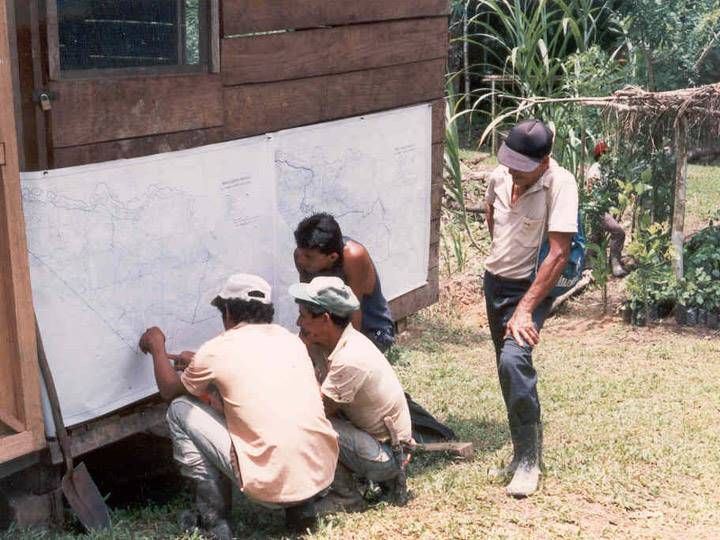The Coastal Lowland Initiative
Contributions. Capacity building.
Contributions to Personal Development
Contributions to Organization and Governance
- Many young people from the coastal lowland communities became certified ecotourism guides, work in community conservation programs or developed related small businesses. Nature related tourism now represents an important part of the economy in the communities around the wildlife refuge, with local people managing lodges, guiding, transportation, and other services.
- Young professionals and protected area managers from around the world developed hands on experience in best practices for civil society participation in sea turtle research and management programs.
Contributions to Organization and Governance
- The initiative was a living experience for the local communities and the national government of working together in the co-management of a protected area.
- The experience served as a model of community participation in sea turtle research and conservation. Best practices and national protocols were developed, and adapted in many other sea turtle programs.
- The initiative provided a successful model of an NGO assuming the staffing and management of a protected area during its initial phase, with a progressive transfer of responsibilities to the national government.
Contributions to Collective action and Voice
Contributions to Access and Benefit Sharing
- Local people gained the right to participate in the management of the wildlife refuge, and exercised this right by doing it over many years, via local management committees and the sea turtle management committee.
- Local nature guides in the two main communities of the wildlife refuge organized themselves to improve their training, mutual support and conservation objectives.
- National and Regional Sea Turtle Conservation Networks were created and strengthened with active participation and leadership by the program staff.
- The NGO formed by the program staff, now called LAST (Latin American Sea Turtles), continues to be a leader in Costa Rica and Latin America for sea turtle conservation.
- The integrated ecotourism lodge, green iguana management and raptor monitoring programs developed by the Kekoldi Indigenous Community are managed by the community association Wak Ka Koneke. The skills, experiences and lessons learned by the local community over the many years of managing these initiatives have contributed to their collective empowerment and capacity to manage their territory.
Contributions to Access and Benefit Sharing
- Eco-volunteer tourism is a way to provide and broadly share the benefits of biodiversity with local people, through greater incomes from tourism that go directly to the people contributing to conservation and sustainability. An under-appreciated benefit is that it provides local people with the opportunity to make important contributions to nature conservation.
- Over 300 local families received clear legal land titles. Going from no land rights to being a secure titled land owner is empowering, and creates incentives for sustainable management.

